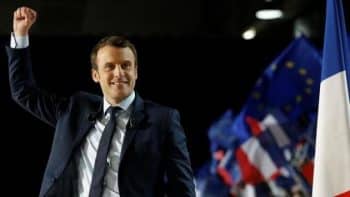The Chinese communists kicked out the the Japanese, then the Europeans, held off the American neo-imperialists at Korea and then Vietnam, provided spectacular economic growth during all that time, ended rampant drug abuse, forbid ethnic quarrelling, and is the economic envy of the world in 2018.
Maybe you don’t want to live there, but you certainly wish your country was doing as well for itself as China is.
Every Third-Worlder would agree with that in a nanosecond, and only a French-style superiority/inferiority complex could cause a Westerner to deny it (or perhaps total ignorance of modern politics).
How did we get here? Divine intervention? Cultural superiority? The dumb luck of an electron’s random path?
Somebody is running political-economic policy on this earth, and the West European (bourgeois) system and socialist-inspired Chinese system answer that question quite clearly in their parts of the world. This is the 7th part in an 8-part series which essentially compares the two systems via comparing two leading English-language literary lights of either one.
And if you’ve read this far you know all that already, so I’ll spare you the preambles and get right down to the nitty gritty.
So who’s your Daddy?
Everybody's got a vanguard party. Democracy is not perfect (only God is), but this does not mean there are not varying degrees of perfection which we can analyse and attain.
In the West, your modern-era vanguard – after decades of money-grubbing, back-stabbing, standing on daddy’s rich shoulders, and exploiting those who work for them – is the economic 1%.
To add journalistic balance: they also got to be the vanguard via the admirable, ethical business practices of Jeff Bezos and Bill Gates, the genius of people like Warren Buffett to support the growth of private, abusive monopolies, and the incredible skills of being phony in public by actors like Ronald Reagan…these are whom have been chosen in the West – via both informal and formal democratic consensus – as their vanguard party.
According to the author of the top English-language university textbook on China, John King Fairbank and his China: A New History, China has always been culturally predisposed towards rejecting that type of a vanguard.
“Once the literati who set the tone of ruling class opinion became convinced that the dynasty had lost its moral claim to the throne, little could save it. This is a factor in Chinese politics today.”
If I said that Chinese literati ran China I’d be called “romantic”, but that’s the view from a pair of Western eyes, which can usually only imagine the army, money, or an only-negative, reactionary clergy to be the the deciding factor in politics.
However, we can say that there certainly was a literati in charge in Revolutionary War-era America – it was bourgeois and slave-owning, but they often talked the right anti-imperialist talk and walked it, too. But nobody can say that about America’s leadership today: I don’t know what the 9th century Chinese theatre equivalent of Bedtime for Bonzo was, but I don’t think the lead actor got very high on their political ladder.
In France, every politician must write at least one book, but…c’mon – they are imperialists, cultural chauvinists and fake-leftists, or somehow all three at the same time quite often. However, at least France is not American, eh?
China may or may not have a “literati” in charge today…but you certainly cannot possibly rise in the Communist Party without being literate in modern political and economic theory. You can call me “Confucian”, but the best way to lead is by example – so what example does their current vanguard party give us?
Just how good is China’s economic planning? There’s a reason we aren’t told.
At 7 parts I’m starting to feel bad for my readers, even though you have paid me nothing, and 98% of you not even paid me a comment compliment!
Regardless of your shameless taking advantage of my labor, I’m going to put the juicier section – China’s economic planning – ahead of the “as painless as possible” very quick recap of the Chinese political structures which permit such a juicy economic policy.
The reality is that people are right to fear rule by the Party – it’s radically new. In human history it has been the 1%, 99% of the time. Even in aboriginal societies, how often were women and the disabled allowed to make major decisions? Therefore, we have almost no data to rely on regarding what happens when an 99%-inspired Party rules.
Common sense tells us that public opinion can’t rule 100% of the time….but just once every 4 years? The scientific method tells us that data and testing are important – we should use them in politics and not just the chemistry lab, no?
 [dropcap]A [/dropcap]great thing about Jeff J. Brown’s China is Communist, Dammit!, just released last year, is that he gives us plenty of evidence which leaves no doubt that China’s system uses data on what the People think: it is a People’s democratic dictatorship, after all, and they absolutely cannot have democracy without compiling data on what the people say they need, want and generally opine on important subjects.
[dropcap]A [/dropcap]great thing about Jeff J. Brown’s China is Communist, Dammit!, just released last year, is that he gives us plenty of evidence which leaves no doubt that China’s system uses data on what the People think: it is a People’s democratic dictatorship, after all, and they absolutely cannot have democracy without compiling data on what the people say they need, want and generally opine on important subjects.
The reality is that China compiles and actually draws from this “Peoples’ data” hugely impressively. It is also a reality that Western parliaments care very little about public opinion on seemingly all policy making, and certainly Western executive branches are not constrained by it either, nor is the European Union or Eurogroup (which runs the Eurozone).
The disparity between China’s reality and image is startling: a “5 year plan” is portrayed as pure dictatorship, but here’s how it’s actually compiled:
“These five-year plans are not done in a vacuum. A vast hierarchy of information speeds up from village committees to county, district, provincial and then national levels. These statistics are based on surveys and polls of the masses. The Communist Party of China is one of the largest polling organizations in the world, obsessively interested in what citizens think about, the good, the bad and the ugly, from garbage services, to medical care, to the ability to buy food or a car.
Computers have made a huge improvement in collecting and analyzing all this information but still thousands of statisticians, actuaries, database experts and technicians who studied at university in urban, rural, agricultural, environmental and economic planning, hundreds of thousands of collective work hours to interpret and analyze this soon army of data statistics and information….Needless to say, for a continent-sized country with over 1 billion citizens, it takes hundreds of thousands of people involved to develop each five-year plan.”
It is not “needless to say”, however, because such facts about China’s governmental and economic process are never uttered in the West. They must fear that we would be contaminated by such democratic common sense. “China is an unfeeling totalitarian system…and they’re capitalist, too. End of story!!!”
This is where new China scholarship by Brown should revolutionise the conceptions of China for those who are honest; Brown has lived there for nearly two decades and is involved in normal, everyday life as an active immigrant-citizen, as his book repeatedly demonstrates. He relates how he knows that polls of all types, and of all demographics, are taking place because he sees constant flyers for them in his regular-class neighborhood. Fairbank will always be “Harvard’s first China scholar”, but he can never outclass Brown on “new”, living China scholarship, though he probably does outclass Brown on old, outdated, scholarship of dead Chinese.
In the West public opinion is polled just one time: during election time, and then is totally ignored. French President Emmanuel Macron and others pride themselves on not listening to public opinion once reaching office, and he is steadfastly implementing whatever the hell he wants; during election campaigns candidates like Hillary bend anyway the latest poll is blowing. Among the People of the West there is abundant proof of support for leftism, and certainly majority support for many socialist-inspired policies, but they are totally ignored because they are unable to play a role in their money-centered, 1%-created and supported, bourgeois, individualistic political process.
Not so socialist China….
“Compared to Western countries, what is amazing is the lack of serious influence that China’s private sector has on the process of developing each five-year plan and budget. The idea of having thousands of lobby and special interest groups, let’s be honest, with hundreds of millions of dollars and euros in hand to essentially buy legislation for their direct benefit, is alien to Chinese governance.
Do various, aforementioned government entities contact the offices of Jack Ma (Alibaba), Robin Li (Baidu), Wang Jianlin (Dalian Wanda Group), and others among China’s elite business world? Of course. But the idea that any of these CEOs or their companies go to the state planning commission or National People’s Congress, with checkbook in hand, to write and buy their own laws, which is standard practice in Eurangloland (European Union, NATO plus Australia, New Zealand and Israel), is unthinkable in Communist China. Their wishes and suggestions are surely known by everyone concerned, but they are trumped by Baba Beijing’s overriding priority of maintaining social stability, called wending in Chinese, and keeping the Heavenly Mandate for the long term. And these Chinese movers and shakers in the business world are in total agreement. No wending is very bad for business, unless you sell arms and weapons, and almost all of these in China are state-owned.”
Brown clearly does not have red-colored glasses about the increased access of China’s 1%, but he demonstrates that the real project of modern socialism is to not to destroy capitalism 100% but to limit it and harness it for the benefit of the 99%.
“Suppose Baba Beijing declared a serious funding issue or the masses began to turn on their superrich 1% class, which is now looked upon with a certain amount of national pride? The National People’s Congress might feel compelled to pass a law requiring all fortunes over $1 billion dollars to pay a 10% or 25% wealth tax to the state treasury. China’s 1% may grumble and complain, but the checkbooks would necessarily be whipped out. They know the only reason they have accumulated the wealth they possess is due to the Communist Party of China’s strategic, long-term, five-, and now essentially 10-year economic plans, and all the well-thought out strategies, subsidies, targeted tax cuts, etc., that were bestowed upon them. There is no sense of thankfulness on the part of Western capitalists for what their governments do for them, because they now they own the process in the first place. How can you be thankful for something which you already consider yours by right?”
The key is that, when it comes to economic planning, socialist-inspired countries have huge leverage to force their economic direction in a way which guarantees – guarantees – to be pointed in a way which is at least primarily intended to help the 99%. Nobody can guarantee economic growth, perhaps, but central planning is a far, far more secure system than trickle-down economics and the boom-bust cycle of capitalist democracies.
In the West public opinion is polled just one time: during election time, and then is totally ignored. French President Emmanuel Macron and others pride themselves on not listening to public opinion once reaching office, and he is steadfastly implementing whatever the hell he wants; during election campaigns candidates like Hillary bend anyway the latest poll is blowing. Among the People of the West there is abundant proof of support for leftism, and certainly majority support for many socialist-inspired policies, but they are totally ignored because they are unable to play a role in their money-centered, 1%-created and supported, bourgeois, individualistic political process.
Undoubtedly, what the above quote demonstrates is how China is able to end to “individually planned” economies – like Macron’s France or the Eurogroup for the Eurozone – which are a clear betrayal of the ideals of Western democracy and certainly socialist democracy, which insists on some equality instead of unrestrained individualist rights.
“In the West, the politicians and policymakers owe their allegiance and existence to the one percent, with their vast sums of money. In China, it’s one percent owes its allegiance, existence and vast sums of money to the Communist Party of China, its politicians and policymakers.”
That is socialism – it is the opposite of individualism; greatly undermining rampant individualism – not all individualism – is the only way to socialism.
It would be nice to reach the ideal of no private property and total equality among citizens – that is communism – but, to paraphrase Fidel: we must change today that which can be changed.
But that is what the experience of the Chinese Communist Party has done: to insist on the unity and brotherhood of all peoples by cutting off at the knees the false idea of the self-made man. Truly, anywhere, everywhere and at all times in history people have made fortunes thanks to help – subsidies, protectionist policies, corruption, favourable loans, favourably-frothing electrons, etc. We are all connected, whether mighty yang CEOs or soft housewife yins.
This acknowledgement – inherent in socialism – is why the Chinese are winning, economically.
Even though I have quoted him liberally, Brown goes into these vital insights in far greater detail, making his book a tremendously valuable read. Governments DO change – all systems are NOT alike – China’s system and practices are stunningly effective, obviously, and stunningly modern as well.
Document and Parliament – Both are shinier, newer and more reflective
But to get so stunningly stunning, there must be a legal foundation to promote and protect such stunningness.
There is a hugely important mistake many people commonly make about life: People in the past were younger (and thus stupider) – those of who are living today are actually older, and thus the repositories of more experiences, maturity and human intelligence.
So why on earth would anyone think a country with a constitution 200 years younger (the US, written 1787) than China’s (written 1982) is somehow “more modern”? The world was so much younger and stupider then?
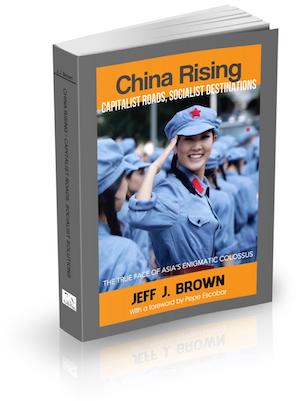
China Rising remains a fundamental text for those wishing to understand China in a comparative framework with the West.
Part of the problem is the use of the phrase “the people’s dictatorship” – whoever sired it, dictatorship is always undesirable to modern ears. However only the Western media uses this two-word phrase! It is truly foreign to Chinese ears – the preamble of the Chinese constitution uses a very different term: “the people’s democraticdictatorship”. This is not a small nuance at all.
China is not really totally ruled by the Party: You never hear this in the West, but there are eight other political parties known as the “Democratic Front”. As their name implies (democracy currently being more associated with personal freedom than equality, for some reason) they are more capitalist and personal freedom-oriented. Far from being a token, they account for some 30% of seats in the largest national legislative body or parliament – the National People’s Congress.
Just as I always say Iran’s PressTV is more diverse and open than Western media – because even though our editorial line is clear we have rabid pro-Zionist analysts all the time, whereas the West doesn’t even have Arab analysts when they are talking about Palestine, (much less Palestinian analysts, LOL) – China’s top legislature has far more ideological balance than the English-speaking world does. The 30% is not in charge – by law – but they are there, and they do make a difference.
There is no such ideological political tolerance in the English-language world, where Hillary passes for a leftist; Corbyn is a very new phenomenon; Canada and Australia have totally lost their sense of self and are US-apers, and I would not have written that 30 years ago.
Continental Europe does not merit being lumped in with them..but not by much, as their non-mainstream / true leftist parties have dwindled greatly.
My overall point is: There IS ideological balance in China’s top legislative body, but it is not a perfect balance NOR should it be. The West has 50-50 balance between left and right regularly…and it produces total gridlock. Probably because it’s a balance of “bad” and “worse”, ideologically!
China also outdoes socialist Cuba in this area: In Cuba’s brand-new parliament – just the 2nd female-majority parliament globally, and with 40% Black or Mestizo members – only 10% of members are not members of the Communist Party. I’m sure that’s never reported either….
But, socialist fanatic that I am repeatedly imagined to be, both China and Cuba (and Iran and Vietnam) have succeeded because they allow more ideological balance at the top then is given credit for. We socialist fanatics like to remember that those horrid souls called “the opposition” do have some valid ideas to implement.
Lobbies are not really democratic – China puts those pigs in a pen
[dropcap]W[/dropcap]hy should you have more influence just because you are rich and well-connected? You should not be able to “pay” for more free speech just because you have the money to do so. If this is considered a lamentable inevitability, then structures are needed to limit it, or simply eliminate it entirely.
That’s why China has another national body which is designed to formally harness an uncontrollable force in the West: special interest groups. Indeed, if you find any nonsensical legislation in the West – the root cause is always a lobby.
Thus, parallel to their parliament, China has the Chinese People’s Political Consultative Conference, which contains all the different types of lobbies – private industry, farmers, youth, pensioners, etc. This body meets at the same time as China’s Congress (Parliament), so they are democratically present at the key time and can do their best to influence opinion.
And I think I have been able to explain – quickly and without boring you – China’s top legislative bodies and how they work. Clearly it is superior in conception, composition and practice to West European (bourgeois) democracy…and if you can just hang in there a tiny bit longer I can sum up China’s modern advantages in the other two branches of government.
China had enough of warlords, but the West loves ‘liberal warlord judge’ Macron
China also differs in the executive branch: in the West it is personified by Emmanuel Macron, the new “liberal (free market / non-racist) strongman”. Macron rules by decree even though his Party has an absolute majority in Parliament! That’s because the open debate of his far-right economic policies would inspire a lot of bad press. Truly, an emperor in the old Chinese mould…minus the conscience-pricking Heavenly Mandate, of course.
China’s system, instead, spreads out the power of the executive branch in order to safeguard the control of the vanguard party – the Communist Party – which has been democratically installed by their 1949 popular revolution. This decentralisation of individual power to preserve the power of an entire Party is what socialism is all about: no more strongmen (and certainly not during non-wartime).
Thus the 300-member Central Committee (of the Communist Party) is the first step above the Congress, but the members are voted for by Congress. That is indirect election, and the US has this (electoral college), as does France (500 mayors are required to sign your petition to run for president). Cuba just elected Canel-Diaz and their Central Committee via the same system. You can call it “not democratic”, and the socialists can call the capitalist system “not democratic”, and that will allow me to move on with this analysis….
The Central Committee elects the members of the Politburo, Military Commission (Party control over army) and General Secretary (leader of Politburo and the top post in China). The Politburo is often described as an “executive cabinet” but it’s much more powerful: of course, in Western cabinets they all serve the will and at the consent of the king. Macron’s cabinet has absolutely no real individual power; Hollande had four prime ministers in 5 years.
There is no public debate within a cabinet and there is no public debate with the Politburo, but the latter’s members are undoubtedly known to wield much more power than Western cabinet members. France’s Prime Minister actually was known for having significant power in shaping domestic policy, historically, but Macron has changed that drastically.
Within the Politburo is the Politburo Standing Committee, which is chosen by Politburo members, and which is best described as similar to a West cabinet, as it includes the president, premier and the nation’s top 5 to 9 advisors. And that’s it.
To sum up: The people vote for Congress, and then you have these committed Party members winnowing themselves down democratically via three smaller rings.
The key is: there is tremendous democratic discussion within these rings, though it is not public. This is something which Western media either cannot or will not understand. But this is why most of the decisions are unanimous – consensus is agreed upon before a vote via discussion. Why on earth should public policy be a “winner take all” situation – China’s solution is clearly more democratic because it actually produces more compromise.
Brown goes into Chinese “face saving” as a reason for not publicly filibustering like a blowhard, and it makes sense, but Cuba’s negotiations are private as well because, again, it actually produces compromise. Yes, odd gadflies cannot pore over every word, but the proof is in the pudding of China and Cuba’s long-term success amid decades of Western blockades.
Back down at the local level, China has the inhabitants of one million villages vote by secret ballot for mayors and city councils. This is the exact same in the West. It differs above this in that China switches from direct to indirect representation after the municipal level: those directly elected at the municipal level vote for township, in turn for county, in turn for province, and then province votes for national assembly.
So we see the same principles of direct and indirect democracy are undoubtedly at play – as they are in Cuba, Iran, etc. – and are at play at different levels. But both principles are used and accepted in both the capitalist and socialist democratic systems.
The major difference is that decades of freedom-fighting and leadership caused the Chinese people to insist on a single vanguard party to oversee the country in order to preserve democracy, and not to hand it to one liberal strongman warlord.
Iran is the same way: our vanguard party, which provided decades of freedom-fighting and leadership – which is the only way such a party can possibly have the credibility and influence needed to mobilise the masses – was the clergy.
To sum up this recap of the structure of Chinese socialist democracy – a quick note about the judicial branch:
China’s judicial history is longer than anyone’s, and is pretty interestingly rendered by Brown. It had explicit civil and penal codes predating not just the Magna Carta but Jesus Christ; has an informal/communal justice system which is the same as the one being hailed as groundbreaking in Northern Syria; and has notes of French and German civil law.
Undoubtedly there are Muslim influences as well, given that many Khans were Muslim and were favoured by the Ming dynasty. This is an area which merits further scholarship, as it is certainly a mine which will produce. It would also provide counter-illumination for self-understanding in many Muslim countries, because countries like Iran were controlled by the Mongols for quite a long era and thus have many “Chinese”-origin policies, thought they may not know it.
The main difference between China and West in the judicial branch is quite simply: the judicial branch is explicitly under the leadership of the Communist Party – a group is the ultimate judge.
In places like the US and France: The ultimate judge is the president. State of emergency or not, they routinely subvert justice simply by claiming “terrorism”. This is not new: before that it was by claiming “communism”. Before that it was by claiming “White superiority”.
So, from Chinese eyes, someone like Macron has made himself into a “liberal warlord judge” even more than previous French warlords.
There is another vital difference: In the West, the inhabitants are encouraged to believe a fiction that their judiciary is completely unaffected by politics, wealth, religion or ethnicity. The West also believes in Santa Claus, but that’s mainly their children.
The same policy of: “A claim of objectivity is laughably unmodern, and also cannot be more important than our overall Party principles” applies to China’s fourth estate – the press. The West also believes their press achieves objectivity, but that is not only among their children.
What have you done for me lately, or let me do?
[dropcap]G[/dropcap]erman, French and English leaders have spent the last 150 years leading horrifically bloody battles against each other. Therefore, is it any wonder that the current European leadership – exemplified by the corrupt, undemocratic Eurogroup – is so reactionary, and so unable to provide the standard of living their people deserve: Europe is perhaps only at the tail end, or perhaps even still in the midst, of a major era of warlordism?
This is probably why there are so many protests in the age of austerity in France. China thinks that’s great, and surely encourages France’s very cute, very comparatively petite efforts at modern democracy.
Protests are good because they let a government know about urgent problems which need to be resolved. These are problems which have not been headed off beforehand, say, by…I don’t know…public polling?
Protests are important to the Chinese Communist Party because they care about corruption, to the point of execution (like Iran), and protests let the public and the Party know which officials are corrupt / inept, and which companies are not following labor laws.
Thus the Communist Party actually encourages pubic protests, which is how China has an average of 3-500 daily protests. That’s a mind-blowing statistic, and I’ve used it before, but this is how new scholarship blows apart previous paradigms, thankfully. France has 10, and they are considered the most protest-happy Western country – proportionally, France has half as many protests as China. I also doubt Chinese protests feature as much alcohol and scatalogical protest signs.
The US has essentially no protests, and the ones I have seen on Youtube have been thwarted by two cops on bicycles, LOL.
Protests in Iran are far, far more common than Westerners think. There is no way for Western media to cover every Iranian protest with the breathless anticipation of the fall of the Iranian Revolution like last January. Protests need permits, just like in France, and I’m not sure what if the US requires a permit or not before some 130-kilo once-a-month National Guard member gets to don $100,000 of equipment before stepping into his assault vehicle. Iran is not China, nor is it France, but it is also not Cuba.
Cuba, does not have any protests other than the Ladies in White. Cuba, being so close to the United States, simply can’t afford to mess around – not with protests, not with the media, not with drugs, not with crime, not with corruption, not with focusing your meager tourist dollars on anything but food, housing, education and medical care (and that’s for the medicines which are not part of the embargo). They have no oil, have a pack of rabidly capitalist Scarfaces glaring at them from Miami, and yet are a helluva lot more successful societally than any non-socialist inspired government.
France, which is assumed to be so very, very socially successful, keeps putting tear gas in my eye. I am not crying tears of liberation, and I have narrowly avoided worse. They also have a delusion that one day of protest does anything to an uncaring government, although maybe that is changing in France’s currently ongoing: “May ’68, 50 years later”.
I just found this protest stuff interesting, and I’m down to just one more part – I’ll wrap this up.
The excellent news is that the 1% has no chance against the Party…any Party

Jeff Brown: Certainly NOT reviewed by the New York Times, which proves his worth to independent minds.
Brown reads off the tale of the tape simply and perfectly:
“Xi commandeers a centrally-planned state-owned economy being guided by the Communist Party of China, all of whom are planning years and decades into the future, with a clear vision and solemn mission statement. Meanwhile, Obama has packs of rabid hyenas circling him, the spydom pack, the military pack, corporate pack, bankster pack, not to mention the Zionist pack. Then he has to deal with a huge flock of vulture legislators on Capitol Hill, venal, fatted and corrupt to the core.”
That is the 1% in a nation of any colour or of any religion which is capitalist and multi-party.
And if you believe THAT is superior to an enlightened vanguard Party working to enforce the People’s will, then…your problem is structural; your blindness is cultural; your individualism is grating to me.
The idea that what Brown has failed to report is that: in China there is a 1% and Deep State-guided industrial-military-banking-media Complex on the exact same model of the West is…absurd. But I can see why the West would think that: humans often project their own experiences onto others, as it is far easier than seeing others as individuals.
Beyond not having this Complex burden, another reality is that the West’s 1% is not burdened by any mandate of good governance or equality, either cultural or found int the structures of their 200-year old founding documents.
Furthermore, the idea that in the modern era of capitalism known as neoliberalism, the West’s 1% has any solidarity with even their own government runs directly contrary to their vision of globalisation.
These last three points are all rather enormous issues, no?
Not the Party’s problem….
It is lazy stereotyping to say that China has this superior leadership because of the Confucian focus on correct, virtuous conduct of the ruler, of which there is nothing like in the West. Islamic Socialist Iran certainly has this ideal omnipresent in their government. However, this idea denies Westerners the chance to see that China’s socialism is both modern and open to all for adoption – it is not culturally predicated, but is a political choice.
Trump just pulled out of the JCPOA on Iran’s nuclear energy program, but all he will do is cause short-term economic pain: Iran, like China, has a modern government which has 5-year plans and can actually act in the long term. I hope Iranian officials are reading Brown’s book and adopting certain Chinese strategies, of course, but Iran has a People’s Democratic Dictatorship Under God, and I am truly comfortable with our long-term success (Inshallah). Anybody who loves socialism, Islamic or not, and the right of People to choose, should be pleased to hear that I and many Iranians actually feel secure in our future despite Trump’s decision, which is quite in keeping with the aggressive policies of Obama, the Bushes, Clinton and Reagan.
In the short-term…well, the US making problems and killing people with blockades -there is nothing new about this, nor does this make Iran special, sadly.
All the West can do is threaten to invade – to repeat their warlordism – but I am not worried at all for places like China and Iran. They can never invade (much less hold) either of these two – they haven’t even been able to invade far, far, far poorer Cuba!
And also: for all the reasons so superbly enumerated by Brown, socialism’s victory is deserved and assured, if not expected right today.
The success of the Chinese Communist Party – and the socialist vanguard parties in places like Cuba, Iran, Vietnam, etc. – are an acknowledgment of their People’s modern refusal to reject the self-aggrandizing nonsense of bourgeois West European political thought. That will bring success, as much as humans can determine it for themselves.
The inherent truths of this statement is clear to any observer, and is the reason why Western media is so against any victory of socialism anywhere in the world, and why they have no choice but to try and falsely claim the credit for China’s success despite have two economic plans which have tremendously few parallel structures.
Brown has some pretty fascinating passages when it comes to the interplay between China’s government and its economics, and I really must stress that I have only given a sample. His debunking of the Western propaganda theme of “ghost cities” makes such propaganda pretty laughable.
Or rather, I’m laughing…and then I’m left rather envious!
You should be too. Certainly, any thinking person starts responding to the question posed by this article’s headline with: “Well I sure don’t want the 1%….”
***********************************
This is the 7th article in an 8-part series which compares old versus new Western scholarship on China.
Here is the list of articles slated to be published, and I hope you will find them useful in your leftist struggle!
Old vs. new scholarship on the continent of China – an 8-part series
Daring to go beyond Western propaganda on the Great Leap Forward’s famine
When Chinese Trash saved the world: Western lies about the Cultural Revolution
Mao’s legacy defended, and famous swim decoded, for clueless academics
The Cultural Revolution’s solving of the urban-rural divide
Once China got off drugs: The ideological path from opium to ‘liberal strongman’ Macron
Prefer the 1% or the Party? Or: Why China wins
China’s only danger: A ‘Generation X’ who thinks they aren’t communist








 In his zeal to prove to his antagonists in the War Party that he is as bloodthirsty as their champion, Hillary Clinton, and more manly than Barack Obama, Trump seems to have gone “play-crazy” — acting like an unpredictable maniac in order to terrorize the Russians into forcing some kind of dramatic concessions from their Syrian allies, or risk Armageddon.However, the “play-crazy” gambit can only work when the leader is, in real life, a disciplined and intelligent actor, who knows precisely what actual boundaries must not be crossed. That ain’t Donald Trump — a pitifully shallow and ill-disciplined man, emotionally handicapped by obscene privilege and cognitively crippled by white American chauvinism. By pushing Trump into a corner and demanding that he display his most bellicose self, or be ceaselessly mocked as a “puppet” and minion of Russia, a lesser power, the War Party and its media and clandestine services have created a perfect storm of mayhem that may consume us all.— Glen Ford, Editor in Chief, Black Agenda Report
In his zeal to prove to his antagonists in the War Party that he is as bloodthirsty as their champion, Hillary Clinton, and more manly than Barack Obama, Trump seems to have gone “play-crazy” — acting like an unpredictable maniac in order to terrorize the Russians into forcing some kind of dramatic concessions from their Syrian allies, or risk Armageddon.However, the “play-crazy” gambit can only work when the leader is, in real life, a disciplined and intelligent actor, who knows precisely what actual boundaries must not be crossed. That ain’t Donald Trump — a pitifully shallow and ill-disciplined man, emotionally handicapped by obscene privilege and cognitively crippled by white American chauvinism. By pushing Trump into a corner and demanding that he display his most bellicose self, or be ceaselessly mocked as a “puppet” and minion of Russia, a lesser power, the War Party and its media and clandestine services have created a perfect storm of mayhem that may consume us all.— Glen Ford, Editor in Chief, Black Agenda Report 


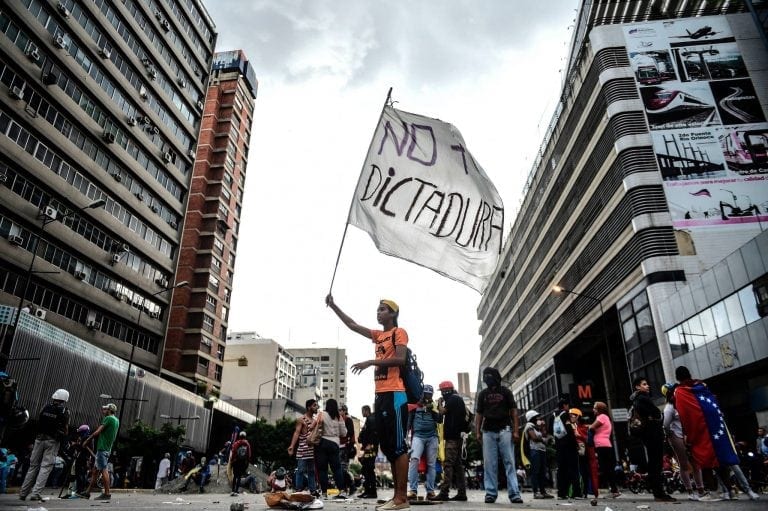


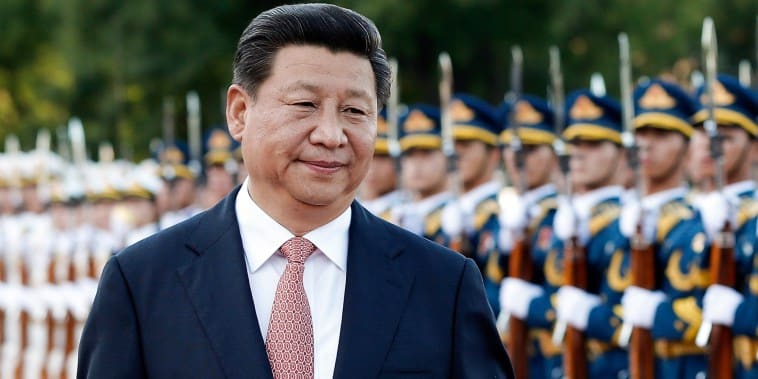






 STEPHEN LENDMAN was born in 1934 in Boston, MA. In 1956, he received a BA from Harvard University. Two years of US Army service followed, then an MBA from the Wharton School at the University of Pennsylvania in 1960. After working seven years as a marketing research analyst, he joined the Lendman Group family business in 1967. He remained there until retiring at year end 1999. Writing on major world and national issues began in summer 2005. In early 2007, radio hosting followed. Lendman now hosts the Progressive Radio News Hour on the Progressive Radio Network three times weekly. Distinguished guests are featured. Listen live or archived. Major world and national issues are discussed. Lendman is a 2008 Project Censored winner and 2011 Mexican Journalists Club international journalism award recipient. His new site is at
STEPHEN LENDMAN was born in 1934 in Boston, MA. In 1956, he received a BA from Harvard University. Two years of US Army service followed, then an MBA from the Wharton School at the University of Pennsylvania in 1960. After working seven years as a marketing research analyst, he joined the Lendman Group family business in 1967. He remained there until retiring at year end 1999. Writing on major world and national issues began in summer 2005. In early 2007, radio hosting followed. Lendman now hosts the Progressive Radio News Hour on the Progressive Radio Network three times weekly. Distinguished guests are featured. Listen live or archived. Major world and national issues are discussed. Lendman is a 2008 Project Censored winner and 2011 Mexican Journalists Club international journalism award recipient. His new site is at 

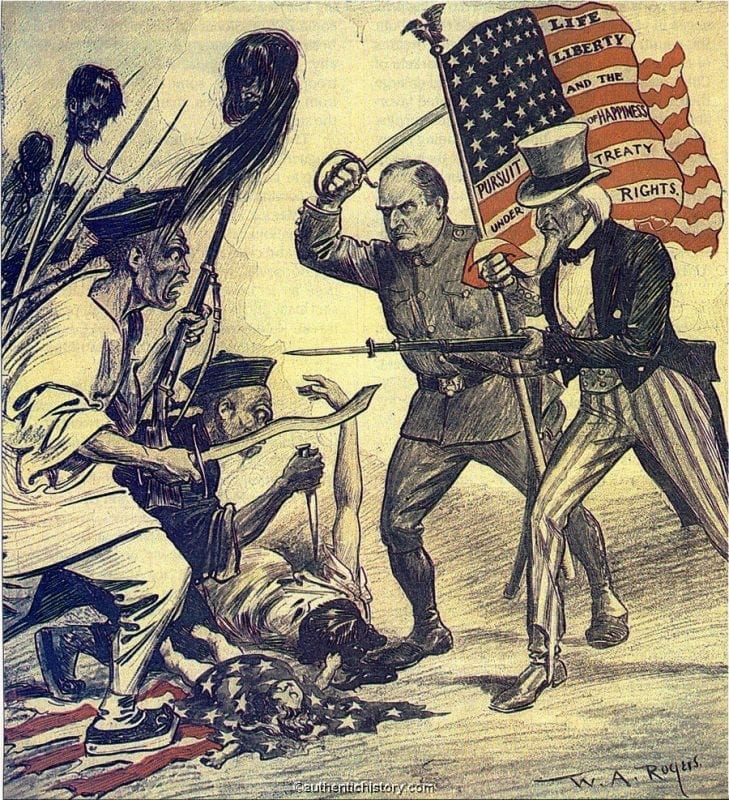
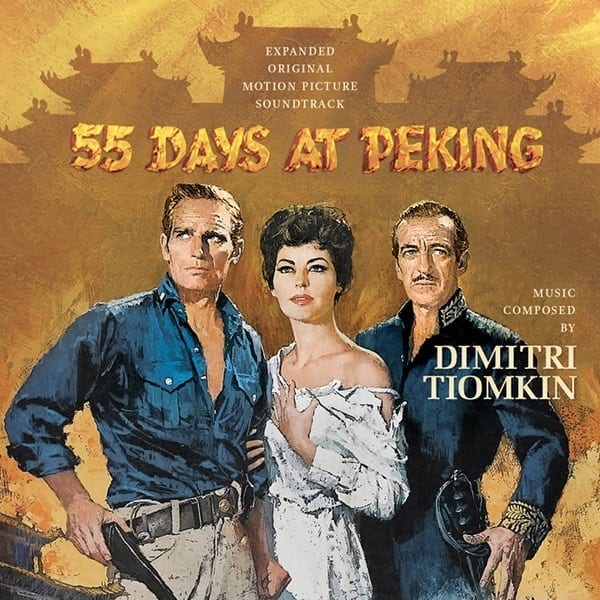

.jpg)
